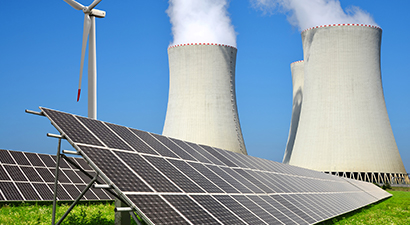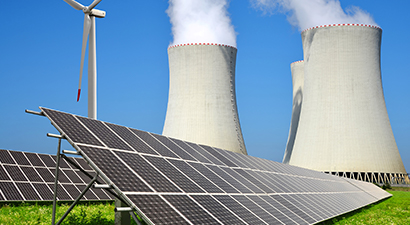Environmental Law: What does 2018 have in store for us?
By the Environmental & Clean Energy Law department
2017 was a busy year insofar as environmental legislation is concerned. Among the changes in 2017 was the amendments to the 2014 Environmental Impact Assessment (EIA) Regulations and listing notices one to three. The following regulations were also published in 2017 and play a significant role in environmental management:
- Section 24G Fine Regulations published under the National Environmental Management Act 107 of 1998. These regulations have been introduced to provide the procedure to be followed and the criteria to be considered in determining an appropriate fine in respect of section 24G applications;
- National Greenhouse Gas Emission Reporting Regulations published under the National Environmental Management: Air Quality Act 39 of 2004. These regulations introduce a single national system for reporting greenhouse gas emissions in order to update and maintain the National Greenhouse Gas Inventory;
- National Pollution Prevention Plans Regulation published under the National Environmental Management: Air Quality Act 39 of 2004. These regulations prescribe the requirements for pollution prevention plans of greenhouse gases declared as priority air pollutants;
- Water Licence Application and Appeal Regulations published under the National Water Act 36 of 1998. These regulations were published to prescribe the procedure and requirements for water use licence applications and appeals; and
- The Waste Tyre Regulations published under the National Environmental Management: Waste Management Act 59 of 2008. These regulations regulate the management of waste tyres which was necessitated by the liquidation of REDISA.
The following draft legislation will most likely come into effect during the course of this year:
- National Environmental Management Act 107 of 1998: Draft Environmental Management Instruments Regulations. These regulations will prescribe the procedure to be followed for adopting Environmental Management Instruments;
- National Environmental Management: Waste Act 59 of 2008: Proposed Regulations for the Control of Import and Export of Waste; and
- National Environmental Management: Waste Act 59 of 2008: Proposed Waste Exclusion Regulations. These regulations prescribe the procedure to be followed by a person when applying to the Minister for the exclusion of a waste stream from the definition of waste. The regulations are also intended to promote diversion of waste from disposal through its beneficial use.
The National Treasury has also published the much-anticipated Second Draft Carbon Tax Bill which closed for public comment on 9 March 2018. In the 2018 Budget Speech, Malusi Gigaba announced that the tax will be implemented from 1 January 2019. He also stated that:
“As with greenhouse emissions, the polluter-must-pay-principle must also apply to other activities which harm the environment, like the dumping of plastics into our oceans and threatening of marine life. Working with the Department of Environmental Affairs, we will shortly publish a policy brief to broaden the scope of environmental fiscal reform, to explore fiscal and regulatory measures to improve water resource management, mitigate the emission of pollutants and encourage recycling to reduce waste, such as plastic, which is polluting our oceans.”
The Second Draft Carbon Tax Bill has far-reaching implications and ensures that South Africa fulfils its Paris Agreement on Climate Change 2015 commitment to reduce greenhouse gas emissions commitment. The Bill also ensures that the nations greenhouse gas emissions are in line with the National Climate Change Response Policy and the National Development Plan. When the Bill eventually comes into law the initial marginal carbon tax will be R120 per tonne of CO2e (carbon dioxide equivalent). According to Treasury, the effective carbon tax rate will range between 6 and 48 Rand per ton CO2e, which is much lower than the initial rate. This implementation model will be complemented by tax incentives and revenue recycling measures to allow a smooth business transition with minimal economic impact. The Bill will create a 60 per cent basic tax-free allowance, and during the implementation phases the total tax-free allowance could reach a high of up to 95 per cent.
Companies must ensure that they keep up to date with the relevant legislative changes that might affect their operations and compliance obligations.






